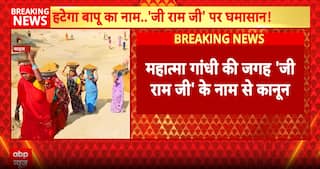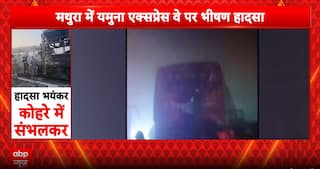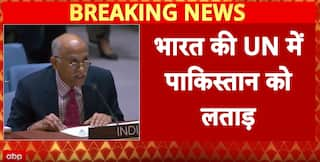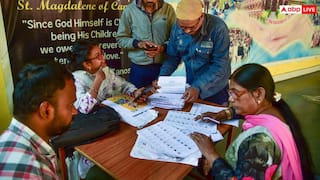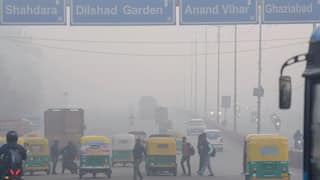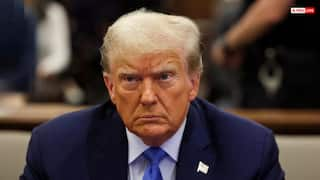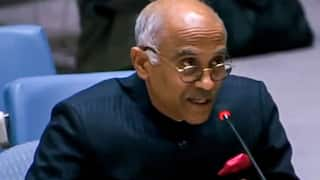Explorer
Indo-Pak peace process: Guess who's uttering the 'suspension' word

New Delhi: The India-Pakistan dialogue stands "suspended", Islamabad's top diplomat said on Thursday, also suggesting that Islamabad may not allow Indian investigators to visit and probe the Pathankot terror attack. Pakistani high commissioner Abdul Basit's comments on Thursday represent a setback for a peace process that Prime Minister Narendra Modi had personally driven with a visit to Lahore last year. They also mark a rare instance of Pakistan dubbing the peace talks suspended, usually a response India resorts to after a major terrorist attack from across the border. "I would say, at present, the dialogue is suspended," Basit told reporters at the Foreign Correspondents Club of South Asia. "There are no talks being planned right now between the foreign secretaries." India responded by pointing out apparent contradictions between Basit's comments and a statement by Pakistan's foreign ministry spokesperson on Thursday, suggesting it had not been told formally about the suspension of talks. The foreign office also insisted that the Indian high commission in Islamabad had made clear to the Pakistan foreign ministry that the visit last week by a Pakistan joint investigation team (JIT) hinged on "reciprocity". The comprehensive bilateral dialogue, revived when foreign minister Sushma Swaraj visited Islamabad last December, has been effectively on hold since the January 2 terror attack in Pathankot. A meeting between the foreign secretaries, scheduled for January 15 in Islamabad, was postponed. But despite ups and downs in ties since then, the official tone in both capitals had till now suggested that Pathankot was a hiccup and not a roadblock. Talks between the foreign secretaries had merely been "postponed" and would be held at "an early date", Indian foreign office spokesperson Vikas Swarup had said on January 14. While a postponement is merely a delay, a suspension implies the absence of any timetable for the resumption of talks. But foreign ministry spokesperson Vikas Swarup suggested Pakistan had not formally communicated the position articulated by Basit, citing comments by the Pakistan foreign office spokesperson an hour before the high commissioner spoke. "Your question implies whether the foreign secretary level talks will take place or not," the Pakistan foreign office spokesperson said, in response to a question. "I have stated this many times that both countries are in contact with each other and it has been reiterated from both sides that modalities are being worked out. I will again state that negotiations are the best means to resolve the issues." The Indian and Pakistani national security advisers have also been speaking regularly over the past three months, and had finalised the agreement under which the JIT had visited. Pakistan's tough posture comes after its arrest last month of a former Indian navy officer who it insists is an Indian spy. "The recent arrest of Kulbhushan Yadav in Pakistan irrefutably corroborates what Pakistan has been saying all along," Basit said. "We all are aware of those who seek to create unrest in Pakistan and destabilise the country." But what can hurt the Modi government the most politically was Basit's insistence that Pakistan was under no obligation to host a team from India's National Investigation Agency (NIA). India's government is already facing criticism from the Opposition and allies like the Shiv Sena for letting a Pakistani joint investigation team (JIT), which included an officer from spy agency ISI, to visit the Pathankot airbase. The team was in India from March 27 to April 1. New Delhi has over the years repeatedly accused the ISI of masterminding terror operations in its territory, and this was the first time India had officially hosted an ISI officer. The NIA, which is leading the investigations into the Pathankot attack on the Indian side, had said it wanted to visit Pakistan and question Pakistani suspects. "The interaction with JIT was held in accordance with terms of reference mutually agreed on the basis of reciprocity," Sharad Kumar, NIA director-general, had said after the Pakistani team left. "The Pakistan JIT was informed that a team of NIA officials would like to visit Pakistan to carry forward the investigation in the Pathankot attack." But Basit dismissed the suggestion that the terms of reference for the Pakistani team's visit had any element of reciprocity built into them. "This is not a question of reciprocity," Basit said, twice. "This is a question of a cooperative approach Pakistan has adopted." Asked whether it meant that Pakistan would not allow the NIA to visit the country, Basit smiled and said: "You can draw your own conclusions." India insisted that it had told Pakistan on March 26, before the JIT visit, that the agreement for the visit depended on reciprocity. The Indian high commission, the foreign ministry said, had formally conveyed to the Pakistani foreign ministry that the terms of reference "are broadly agreed to with the proviso that these would be on the basis of reciprocity and followed in accordance with extant legal provisions". Basit's comments came less than an hour after India's foreign office had acknowledged rare cooperation from Pakistan. "The work of the JIT was as per agreed terms of reference decided by the two foreign ministries," Swarup said this afternoon. "This is the first time we have received cooperation of this kind from Pakistan."
Follow Breaking News on ABP Live for more latest stories and trending topics. Watch breaking news and top headlines online on ABP News LIVE TV
Read more










